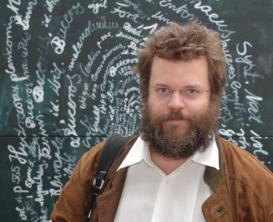
Manfred Laubichler joined the Research Program on the History of the Max Planck Society (GMPG) in 2013. He is President’s Professor of Theoretical Biology and History of Biology at Arizona State University and a Professor at the Santa Fe Institute. He and his group study among others the problem of evolutionary innovations—from genomes to technologies and knowledge systems. To this end Laubichler and his team develop novel analytical methods (big data computational history of science) and a general theory of phenotypic and knowledge evolution (extended evolution theory). Laubichler first studied zoology and mathematics in Vienna and received his PhD in Biology from Yale University before studying history and history of science at Princeton. His honors include being an elected fellow of the American Association for the Advancement of Science (AAAS).
Within the GMPG, Manfred Laubichler is focused on the role of the MPG within the development and differentiation of the life sciences, including international comparisons. His general research interests span history of biology, computational history of science, evolutionary models of the dynamics of knowledge, and complexity theory.
